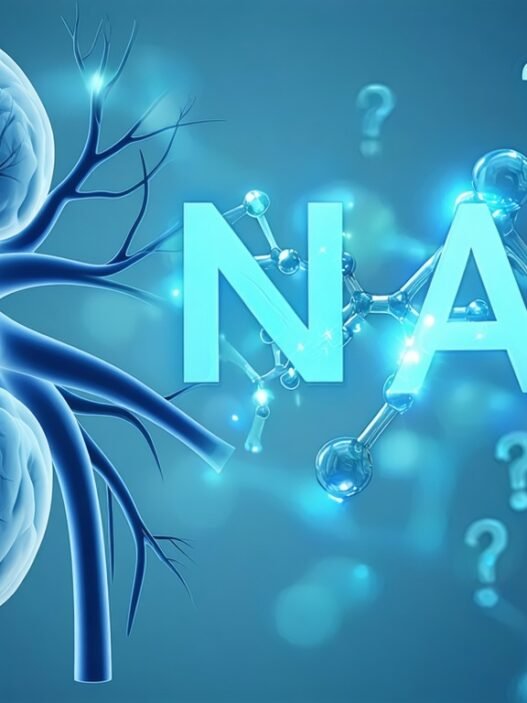Understanding NAC as an Antioxidant
N-acetylcysteine (NAC) is a powerful compound that has garnered attention for its role as an antioxidant and its ability to reduce inflammation. This section will cover the benefits of NAC in providing antioxidant effects and its influence on inflammation.
Benefits of NAC in Antioxidant Effects
NAC is essential for synthesizing glutathione, one of the body’s most potent antioxidants. Glutathione plays a critical role in neutralizing free radicals that can damage cells and tissues, thereby supporting the immune system and reducing the risk of chronic diseases such as cardiovascular issues (Healthline). The antioxidant properties of NAC promote cellular health and help mitigate the effects of oxidative stress.
The following table illustrates the antioxidant functions of NAC:
| Function | Description |
|---|---|
| Glutathione Production | Supports synthesis of glutathione, crucial for detoxification and cellular protection. |
| Oxidant Scavenging | Neutralizes free radicals, preventing cell damage. |
| Support in Diseases | Implications in reducing severity in conditions like neurodegenerative diseases. |
NAC’s Role in Reducing Inflammation
NAC also exhibits significant anti-inflammatory properties. It has been shown to mitigate inflammation through various mechanisms, including its role as an antioxidant (PMC). By replenishing glutathione levels, NAC helps combat oxidative stress, which is often a contributor to inflammatory responses in the body.
Moreover, NAC has applications in treating chronic conditions associated with inflammation, and its safety profile is well-established, making it a suitable option for patients with various health concerns. As an effective mediator in reducing inflammation, NAC can potentially aid in conditions where inflammation is a primary concern, such as respiratory diseases and other inflammatory disorders.
For more information about NAC’s effects on specific health conditions, including its role in detoxification and liver health, see our article on what is nac n-acetyl cysteine used for?.
NAC for Specific Health Conditions
N-acetyl cysteine (NAC) has garnered attention for its multitude of health benefits, particularly in relation to liver health, detoxification, and chronic health conditions. This section will delve into how NAC can support detoxification, its impact on chronic lung diseases, and its relationship with insulin resistance.
NAC in Detoxification and Liver Health
NAC is recognized for its detoxifying properties, especially in the realm of liver health. It is vital for synthesizing glutathione, a powerful antioxidant that neutralizes free radicals and protects cells from damage. Studies indicate that NAC can be effective in treating acetaminophen (paracetamol) overdose by replenishing glutathione levels, which aids in breaking down acetaminophen and preventing liver damage when administered within 8 to 10 hours of the overdose.
In addition to its role in acute scenarios, NAC can help prevent or mitigate kidney and liver damage from various conditions due to its antioxidant and anti-inflammatory properties. Regular use of NAC supplements may support overall liver function and detoxification mechanisms.
| Health Benefit | Impact of NAC |
|---|---|
| In liver detoxification | Replenishes glutathione, mitigates liver damage |
| During overdose | Effective in breaking down acetaminophen |
| Chronic conditions | Supports long-term liver health and function |
NAC’s Impact on Chronic Lung Diseases
NAC has shown promise as a therapeutic agent for various chronic lung diseases. Its mucolytic properties help thin mucus in the airways, making it easier to expel. Individuals with conditions such as chronic obstructive pulmonary disease (COPD) and cystic fibrosis can benefit from NAC supplementation, as it aids in reducing mucus viscosity and promotes clearer airways.
This assistance allows for improved lung function and overall respiratory health. NAC not only acts as an expectorant but also represents a valuable adjunct in the management of chronic lung conditions.
| Condition | Benefits of NAC |
|---|---|
| Chronic Bronchitis | Thins mucus, eases air passage |
| COPD | Reduces mucus viscosity, supports lung function |
| Cystic Fibrosis | Aids mucus clearance, facilitates breathing |
NAC and Insulin Resistance
Research suggests that NAC may play a role in improving insulin sensitivity, making it a potential ally for those concerned with metabolic health. Insulin resistance is a key factor in the development of type 2 diabetes, and studies indicate that NAC can help modulate insulin levels and enhance cellular response to insulin.
By boosting glutathione levels and reducing oxidative stress, NAC may lower the risk of developing insulin resistance, thereby contributing to better blood sugar management. However, more extensive studies are needed to fully elucidate the extent of NAC’s effects on insulin sensitivity.
| Health Aspect | Role of NAC |
|---|---|
| Insulin Sensitivity | May improve response to insulin |
| Blood Sugar Regulation | Helps lower risk of insulin resistance |
| Oxidative Stress Relief | Reduces harm caused by free radicals |
NAC’s diverse applications in managing specific health conditions highlight its potential as a valuable supplement. It is crucial for individuals interested in these benefits to consider consulting with a healthcare professional before starting NAC, especially for tailored dosage recommendations. For further information on how NAC functions, see our article on what is nac n-acetyl cysteine used for?.
Exploring NAC’s Neuroprotective Properties
N-Acetyl Cysteine (NAC) has garnered attention for its neuroprotective capabilities. Here’s an overview of its influence on brain function, its potential in treating neurodegenerative diseases, and its benefits for mental health conditions.
NAC’s Influence on Brain Function
NAC plays a vital role in enhancing brain health by replenishing glutathione levels, which is a powerful antioxidant. It manages neurotransmitters and reduces inflammation, all fundamental for maintaining cognitive abilities. By regulating glutamate levels in the brain, NAC helps in stabilizing neural activities, which is crucial for individuals with neurodegenerative conditions such as Alzheimer’s and Parkinson’s diseases.
| Mechanism | Effect |
|---|---|
| Glutamate regulation | Stabilizes neural function |
| Antioxidant action | Reduces oxidative stress |
| Inflammation reduction | Protects brain tissue |
NAC’s Potential in Treating Neurodegenerative Diseases
Research indicates that NAC could play a significant role in managing neurodegenerative diseases. It helps to protect brain cells, which can be particularly beneficial for conditions like Alzheimer’s and Parkinson’s. The antioxidant properties of NAC combat oxidative stress, a major factor in the progression of such disorders.
Additionally, NAC acts as a glutamate antagonist by facilitating the production of GABA, potentially enhancing therapeutic outcomes for disorders characterized by excitotoxicity (Health Rising).
| Condition | Potential Benefit |
|---|---|
| Alzheimer’s disease | Slows cognitive decline |
| Parkinson’s disease | Protects against neuron damage |
| Amyotrophic lateral sclerosis (ALS) | May inhibit progression |
NAC for Mental Health Conditions
NAC is also recognized for its potential to improve various mental health conditions. It has shown promise in treating bipolar disorder, schizophrenia, obsessive-compulsive disorder (OCD), and substance use disorders by regulating glutamate levels in the brain. The mechanisms through which NAC operates as an antioxidant help mitigate symptoms associated with these mental health issues.
| Mental Health Condition | NAC’s Role |
|---|---|
| Bipolar disorder | Stabilizes mood swings |
| Schizophrenia | Reduces symptoms |
| OCD | Decreases compulsive behaviors |
NAC’s neuroprotective properties showcase its potential as a beneficial supplement for brain health. Its influence on brain function, treatment of neurodegenerative diseases, and impact on mental health conditions highlight its versatility in promoting cognitive well-being. For more information on whether NAC is inflammatory and its uses, refer to our article on what is nac n-acetyl cysteine used for?.
NAC for Respiratory Health
N-Acetyl Cysteine (NAC) has gained attention for its role in supporting respiratory health. Its antioxidant and mucolytic properties make it an effective option for those dealing with respiratory conditions.
NAC in Respiratory Conditions
NAC has been beneficial in relieving symptoms associated with various respiratory issues. It acts as an antioxidant and expectorant, which aids in improving chronic obstructive pulmonary disease (COPD) symptoms, exacerbations, and lung decline. This compound can also help those suffering from chronic bronchitis, cystic fibrosis, asthma, and pulmonary fibrosis. Studies indicate that NAC may help improve overall lung function and reduce inflammation within the airways, providing symptomatic relief for many individuals.
| Respiratory Condition | NAC Benefits |
|---|---|
| COPD | Reduces symptoms and exacerbations |
| Chronic Bronchitis | Helps clear mucus |
| Cystic Fibrosis | Improves lung function |
| Asthma | Reduces airway inflammation |
| Pulmonary Fibrosis | Supports lung health |
NAC’s Role in Lung Function
NAC enhances lung function by thinning mucus, which facilitates easier breathing. Its mucolytic properties help break down mucus in the respiratory tract, allowing for better airflow. Through this mechanism, NAC may reduce the frequency and severity of cough associated with various lung conditions. Regular use can lead to improvements in lung capacity and overall respiratory wellness.
NAC as an Expectorant
NAC is classified as an expectorant, which means it helps to loosen and expel mucus from the respiratory system. This action is essential for individuals suffering from conditions that produce excess mucus, as it assists in clearing the airways and improving breathing. NAC’s ability to reduce mucus viscosity allows for better clearance from the lungs, making it easier for individuals to breathe.
In summary, NAC plays a crucial role in promoting respiratory health through its effectiveness in various lung conditions, enhancing lung function, and acting as a natural expectorant. For those concerned about respiratory health and seeking longevity, NAC may be an essential supplement to consider in their wellness routine. For more information on how NAC supports health, explore what is nac n-acetyl cysteine used for?.
Safety and Precautions of NAC
When considering the incorporation of N-acetyl cysteine (NAC) into a health regimen, it is essential to be aware of its interactions with medications, appropriate dosage, and potential side effects.
NAC Interactions with Medications
NAC may interact with certain medications and could lead to increased risks or reduce the effectiveness of other treatments. For example, when taken with nitroglycerin, NAC may increase the likelihood of side effects such as headache, dizziness, and lightheadedness (WebMD). Additionally, for those on blood pressure medications, NAC might cause low blood pressure, necessitating close monitoring of levels.
NAC may also interfere with the effectiveness of activated charcoal in treating poisoning related to acetaminophen (Tylenol) and other medications. It is crucial to consult with a healthcare professional if taking any of these medications and considering NAC supplementation.
NAC Dosage and Administration
The appropriate dosage of NAC can vary depending on the specific health goals and individual factors such as age, weight, and overall health. Here’s a common guideline for NAC consumption:
| Purpose | Dosage (mg) |
|---|---|
| General antioxidant support | 600 – 1,200 mg daily |
| Liver detoxification | 1,200 – 2,400 mg daily |
| Respiratory health | 600 – 1,200 mg daily |
It is advisable to start with the lower end of these dosages and adjust as necessary, based on individual tolerance and under medical guidance. For more information on daily use, refer to our article on is it ok to take nac everyday?.
Potential Side Effects of NAC
While generally considered safe, NAC can cause side effects in some individuals. These may include:
- Gastrointestinal disturbances such as nausea, vomiting, or diarrhea
- Allergic reactions ranging from skin rash to breathing difficulties in rare cases
- Possible blood thinning effects leading to increased bruising or bleeding when taken with anticoagulants (WebMD)
For detailed insights into negative side effects, refer to our article on what are the negative side effects of nac?.
Before starting NAC, consulting a healthcare provider is recommended, especially for individuals with existing health conditions or those taking other medications. Understanding these safety and precautionary measures helps maximize the benefits of NAC while minimizing any potential risks.
Emerging Research on NAC
N-Acetyl Cysteine (NAC) is garnering attention for its potential in various health applications. Researchers are exploring investigational uses of NAC in specific health conditions, its role in rare genetic disorders, and the future directions of NAC research.
Investigational Uses of NAC
NAC is well-regarded for its mucolytic properties and its ability to act as an antioxidant and anti-inflammatory agent. This makes it a promising therapeutic option for many conditions characterized by oxidative stress, including diabetes, obesity, and various inflammatory diseases (NCBI). Research is ongoing to explore its effectiveness in treating diseases such as:
| Condition | Potential Benefits |
|---|---|
| Diabetes | Regulating blood sugar and reducing complications |
| Cancer | Mitigating oxidative stress to enhance treatment efficacy |
| Neurological Disorders | Reducing brain cell oxidative damage and improving dopamine function, potentially aiding conditions like Alzheimer’s and Parkinson’s disease (Healthline) |
| Inflammatory Diseases | Modulating inflammatory pathways and suppressing cytokines (PMC) |
NAC in Rare Genetic Disorders
NAC is being investigated for its utility in rare genetic disorders, particularly those related to mitochondrial dysfunction. Preclinical studies suggest NAC may benefit conditions like primary mitochondrial diseases and adrenoleukodystrophy (ALD). The compound appears to reduce reactive oxygen species (ROS) production and restore mitochondrial function, highlighting its potential role in mitigating damage associated with these disorders.
Future Directions for NAC Research
As interest in NAC grows, future studies are likely to further elucidate its therapeutic benefits. Researchers aim to explore:
- Expanded Applications: Investigating new conditions beyond current applications, particularly those involving chronic inflammation and oxidative stress.
- Mechanisms of Action: Understanding how NAC exerts its effects at a cellular level, particularly in the brain.
- Long-term Safety: Assessing the long-term use of NAC and its safety profile for chronic conditions.
Through ongoing research, NAC may unlock new avenues for treatment and prevention in various health fields. For individuals interested in liver health and detoxification, understanding the implications of NAC becomes increasingly important. For additional insights into the benefits and potential risks, refer to our articles on what is nac n-acetyl cysteine used for? and is nac good for your liver?.





















